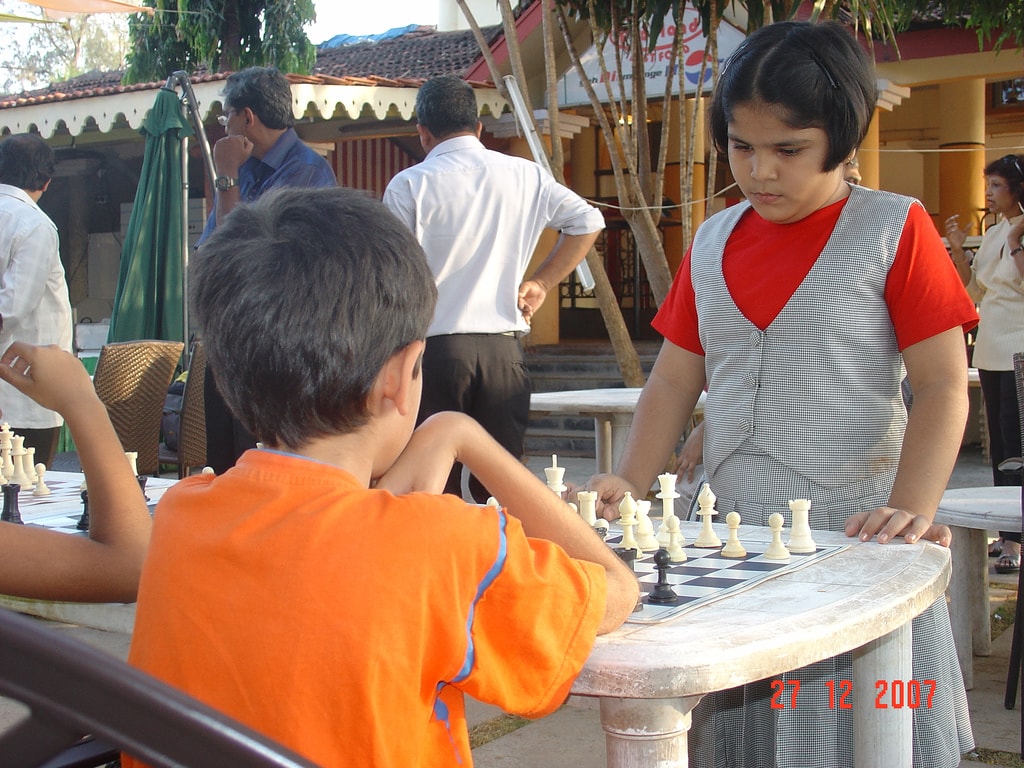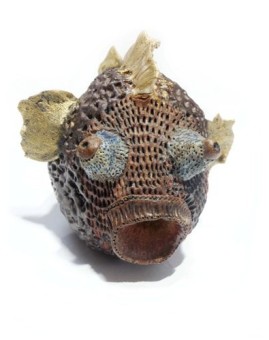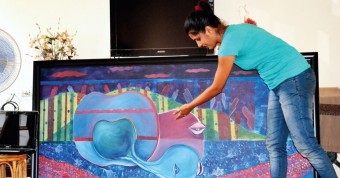Ivana Furtado playing a friendly match at a Goanet meet
Oldest Goan online social media experiment turns 21
Herman Carneiro, then a 17-year-old lad, now an eligible, engineer-cum-doctor of 38, reminded us that Goanet completed 21 years of its existence on August 25, just a few days back. Ex-Kenya Herman founded this cybernet when he was at the North Eastern University in Boston.
So, to mark this event, let me share 21 thoughts of mine:
- It’s not possible to be a neutral journo here. As a close supporter of the project, I’ve been involved with it for 20+ of its 21 years. Working with Herman and team has been a pleasure. Few can work for that long without squabbles and fallouts.
- Goanet came in the first batch of cyber triplets. It was founded almost simultaneously with Marlon Menezes’ GoaCom (also called GoaWeb) and Goa-World created by Uly Menezes in Kuwait.
- Email is old, simple technology. Yet it has played a key role, and continues to do so.
- Its strength shows up in the fact that it has survived all this time.
- But its real power is reflected in the many initiatives it spawned. I should know, having been inspired by it to copy-paste its template and create some fairly successful mailing lists for local villages, professional groups (journalists and the Computer Society of India), techies (Free Software), educationists and documentary film makers across India, Chhatishgarh-Net, even the much-noticed BytesForAll which stayed active for the better part of a decade.
- Goanet is a cyber-taverna of sorts. You meet all kinds there. Most were delightful to meet. This is a place for building friends, making lifelong contacts, and more. A few were nasty and unpleasant, best forgotten.
- I’d like to think that the good generated outweighed the bad. Not everyone might agree.
- Eddie D’Sa, editor of the extant Goan Overseas Digest (UK), commented: “Although I have been no more than a marginal follower of Goanet, I think it would be a useful exercise for the community to know what precisely has been achieved over the years and to categorise the achievements. A sort of history of Goanet.” Agreed.
- Goanet is surely the only Goan — probably Indian — social media experiment to have a full academic paper written about it. See Dr Alberto G Gomes’ paper athttp://bit.ly/goanet-global
- If politicians (and their supporters) used, misused and manipulated the social media during and around the 2012 elections in Goa, clearly the inspiration of the power of this tool came from experiments like Goanet. Sadly, it was such vested interests that realised the role it could play even more than many of us!
- Social capital that was built due to Goanet was huge. Skeptics ask: what the heck do you mean by social capital? Just google for the answer.
- Goanet replicated some of the flaws of Goan society. Frankly, our gender balance (and treatment of women) left much to be desired; this has to some small extent been rectified with Goanet-Femnet. Caste, communal divisions and language disputes surfaced sometimes. But we are nowhere like some of the groups whose prime purpose of existence seems to be to insult people with a different background.
- Moderating an electronic mailing list can sometimes be a thankless job. Initially, some posters (a few hell bent on critiquing this project) would blame us for ‘censoring’ too much material. Later, we got blasted for letting too much material going through, without filtering! Seehttp://bit.ly/goanet-bitterness
- Volunteerism works. Specially in the cyber world. To keep something going for 21 years? Without a paisa in funding, and next-to-zero advertising? Yes…
- Goa has its internal antagionisms. But nothing is so strong that can’t be overcome. This has been repeatedly the case on Goanet itself.
- OnJuly 3, Cecil Pinto put out a list of “influential people in Goan cyberspace”. What surprised me — or did it? — was that well over one of every two people on that list had started out on Goanet.
- In times when there was very limited media in Goa, Goanet played a key role in promoting free speech. Some journalists also recognised that.
- There’s so much good news out there. Unlike some of our papers, which focus on the bad things in life. Here were Goans achieving things worldwide, people willing to link up, to help, to send back computers for schools in Goa, to share news, and discuss.
- If the ‘cudds’ of the 20th century gave Goans a headstart in a heartless city like Bombay, the ‘cyberkudds’ like Goanet have a role to play in the 21st century. Can we rise to the challenge?
- Goanet symbolises the power of the gift-economy. Many of us gave freely of our time and interest. We got back too, in huge measure. My freelancing turned sustainable, I’d like to believe, because of this giving venture. As I often say, I must have got back a thousandfold compared to what I gave. If only more people would believe in the power of sharing. Freely.
• It was initiatives like Goanet, whose history it’s easy to forget today, that changed the way we saw Goa, the diaspora, and Goa’s role in the outside world. To the many people who made this happen (see the list on the Goanet page at Wikipedia, and journalist Joel D’Souza who passed away recently), this is a much much-needed thank you!
A Goanetter’s meet
Herman Carneiro, Founder of Goanet







